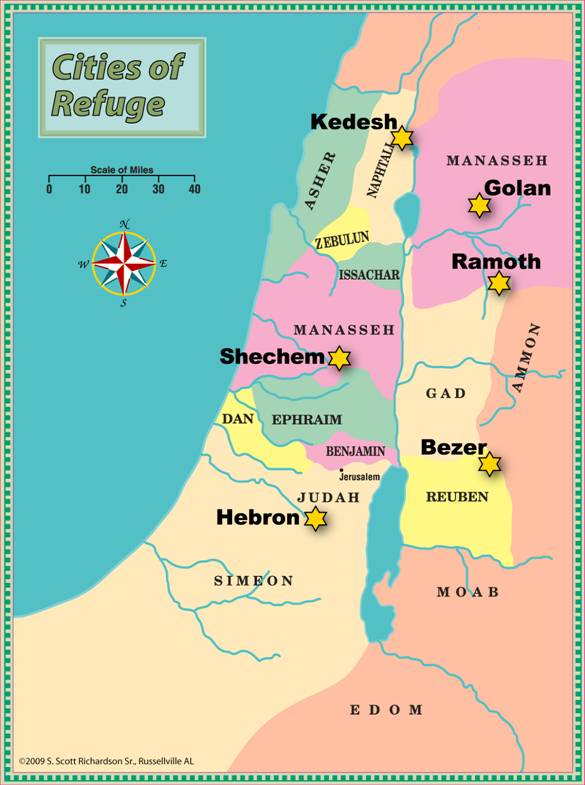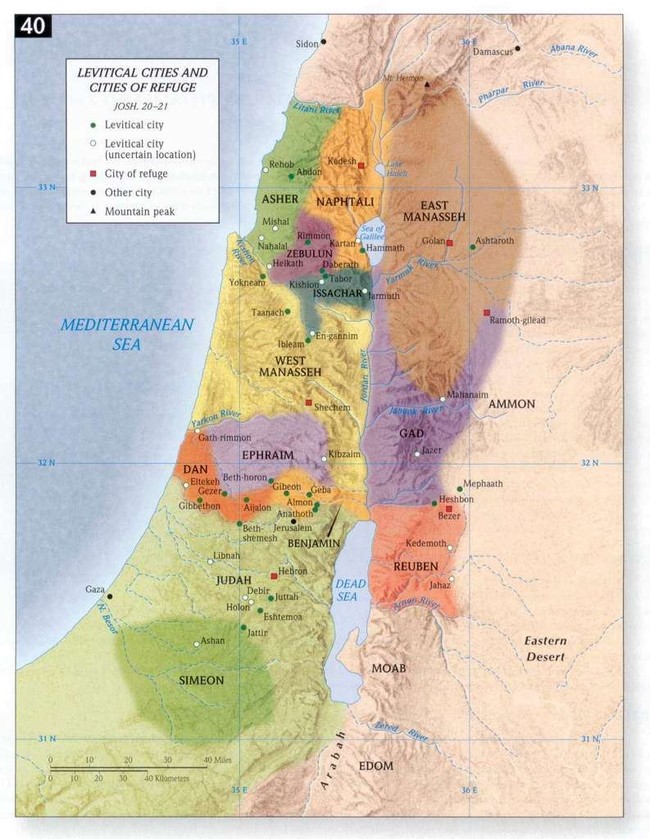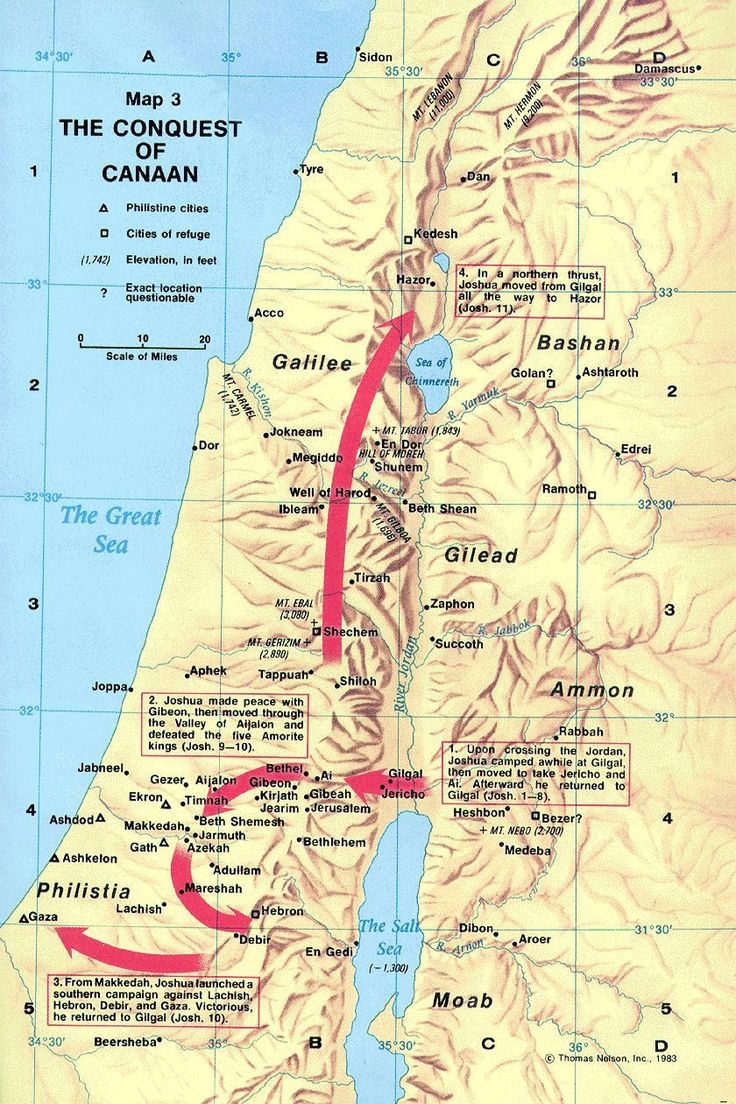1 The ark of the Lord was in the country of the Philistines seven months. 2 And the Philistines called for the priests and the diviners and said, “What shall we do with the ark of the Lord? Tell us with what we shall send it to its place.” 3 They said, “If you send away the ark of the God of Israel, do not send it empty, but by all means return him a guilt offering. Then you will be healed, and it will be known to you why his hand does not turn away from you.” 4 And they said, “What is the guilt offering that we shall return to him?” They answered, “Five golden tumors and five golden mice, according to the number of the lords of the Philistines, for the same plague was on all of you and on your lords. 5 So you must make images of your tumors and images of your mice that ravage the land, and give glory to the God of Israel. Perhaps he will lighten his hand from off you and your gods and your land. 6 Why should you harden your hearts as the Egyptians and Pharaoh hardened their hearts? After he had dealt severely with them, did they not send the people away, and they departed? 7 Now then, take and prepare a new cart and two milk cows on which there has never come a yoke, and yoke the cows to the cart, but take their calves home, away from them. 8 And take the ark of the Lord and place it on the cart and put in a box at its side the figures of gold, which you are returning to him as a guilt offering. Then send it off and let it go its way 9 and watch. If it goes up on the way to its own land, to Beth-shemesh, then it is he who has done us this great harm, but if not, then we shall know that it is not his hand that struck us; it happened to us by coincidence.”
10 The men did so, and took two milk cows and yoked them to the cart and shut up their calves at home. 11 And they put the ark of the Lord on the cart and the box with the golden mice and the images of their tumors. 12 And the cows went straight in the direction of Beth-shemesh along one highway, lowing as they went. They turned neither to the right nor to the left, and the lords of the Philistines went after them as far as the border of Beth-shemesh. 13 Now the people of Beth-shemesh were reaping their wheat harvest in the valley. And when they lifted up their eyes and saw the ark, they rejoiced to see it. 14 The cart came into the field of Joshua of Beth-shemesh and stopped there. A great stone was there. And they split up the wood of the cart and offered the cows as a burnt offering to the Lord. 15 And the Levites took down the ark of the Lord and the box that was beside it, in which were the golden figures, and set them upon the great stone. And the men of Beth-shemesh offered burnt offerings and sacrificed sacrifices on that day to the Lord. 16 And when the five lords of the Philistines saw it, they returned that day to Ekron.
17 These are the golden tumors that the Philistines returned as a guilt offering to the Lord: one for Ashdod, one for Gaza, one for Ashkelon, one for Gath, one for Ekron, 18 and the golden mice, according to the number of all the cities of the Philistines belonging to the five lords, both fortified cities and unwalled villages. The great stone beside which they set down the ark of the Lord is a witness to this day in the field of Joshua of Beth-shemesh.
19 And he struck some of the men of Beth-shemesh, because they looked upon the ark of the Lord. He struck seventy men of them, and the people mourned because the Lord had struck the people with a great blow. 20 Then the men of Beth-shemesh said, “Who is able to stand before the Lord, this holy God? And to whom shall he go up away from us?” 21 So they sent messengers to the inhabitants of Kiriath-jearim, saying, “The Philistines have returned the ark of the Lord. Come down and take it up to you.” – 1 Samuel 6:1-21 ESV
Seven long and painful months passed before the Philistines decided to do something about the curse of the ark. They had transported it from city to city in an attempt to escape the judgments that accompanied its presence, but relocating this idol of the Israelite god didn’t remedy their problem. The plague of debilitating and deadly tumors spread wherever the ark was taken, accompanied by a supernatural infestation of grain-devouring mice. Yahweh, the God of the Israelites, was destroying their bodies as well as their crops, and Dagon, their “father of the gods” had proved to be no help. This pagan deity was believed to be half-man and half-fish and was worshiped as the creator god and lord of the land.
“This deity was a personification of the generative and vivifying [life-giving] principle of nature, for which the fish with its innumerable multiplication was especially adapted, to set forth the idea of the giver of all earthly good.” – Keil and Delitzsch, Commentary on the Old Testament
Yet, the image of their great deity remained on its face in the temple that bore its name, a broken and lifeless idol that proved to be no match for the one true God. Their god of grain could not stop the plague of mice that devoured their crops. Dagon, the life-giving god of the Philistines, was powerless to eliminate the painful tumors that had covered the bodies of his worshipers. This false god had proven to be a fraud.
So, the Philistines came up with a plan. Rather than presenting offerings to Dagon, they would return the ark to Israel, accompanied by a guilt offering to assuage the anger of Yahweh. This God of the Israelites had proven Himself to be both powerful and vengeful, and they were desperate to be out from under His wrath.
The Philistines sought the wisdom of their priests and diviners, who advised that a form of tribute be paid to the God of Israel.
“Send the Ark of the God of Israel back with a gift,” they were told. “Send a guilt offering so the plague will stop. Then, if you are healed, you will know it was his hand that caused the plague.” – 1 Samuel 6:3 NLT
Strangely enough, they recommended the creation of “Five golden tumors and five golden mice” (1 Samuel 6:4 ESV). These miniature icons were meant to represent their suffering and they hoped that by sending them to Israel’s God in the form of a tribute, He would graciously remove the real tumors and mice from their land.
This entire plan was a shot in the dark because the Philistines had no idea if it would work. Their knowledge of Yahweh was limited and based on the ancient rumors of what He had done to the Egyptians. That is what led the priests to warn the people, “Why should you harden your hearts as the Egyptians and Pharaoh hardened their hearts? After he had dealt severely with them, did they not send the people away, and they departed?” (1 Samuel 6:6 ESV).
The Israelite God had devastated the Egyptians with a litany of terrible plagues until they relented and set the Israelites free. If the Philistines wanted to escape God’s wrath, they would need to return His ark and pay for their sins. This entire chapter portrays the Philistines as more repentant than the chosen people of God. These idolatrous polytheistic pagans showed more fear and reverence for Yahweh than the Israelites. Absent from this chapter is any mention of Israel’s actions during the seven months the ark remained in Philistine hands. There is no indication that Israel grieved or mourned their loss. No prayers are recorded. No offerings are described. According to verse 13, the people of Israel were living their lives as if nothing had ever happened.
Now the people of Beth-shemesh were reaping their wheat harvest in the valley. – 1 Samuel 6:13 ESV
While the Philistines had been watching their crops be destroyed by mice, the Israelites had been enjoying the blessings of God. Yet, it seems as if the loss of the ark had made no impact on them. It was business as usual in Israel. Crops needed to be harvested. Grapes needed to be gathered and processed into wine. But as long as the ark remained in enemy hands, no atonement for sin could be made for the sins of the people. Yet, there’s no indication that the Israelites were concerned in the least.
Meanwhile, the Philistines loaded the ark on a cart accompanied by the golden tumors and mice. As a test to see if the God of Israel would accept their gift, they yoked two untrained milk cows to the cart that had never been used for this kind of labor. They would be expected to draw this cart back to Israelite territory without the benefit of a human driver. And, to make the test more difficult, the calves of these two milk cows were separated from them and locked away. It would be a miracle if these lactating cows left behind their recently born calves; their maternal instincts would prevent them from doing so.
But the test worked, because “the cows went straight in the direction of Beth-shemesh along one highway, lowing as they went. They turned neither to the right nor to the left, and the lords of the Philistines went after them as far as the border of Beth-shemesh” (1 Samuel 6:12 ESV). The ark and its precious content arrived safely back in Israel and were greeted with enthusiasm.
The people of Beth-shemesh were harvesting wheat in the valley, and when they saw the Ark, they were overjoyed! The cart came into the field of a man named Joshua and stopped beside a large rock. So the people broke up the wood of the cart for a fire and killed the cows and sacrificed them to the Lord as a burnt offering. – 1 Samuel 6:13-14 NLT
They were shocked and surprised because this was not what they had been expecting. After seven months, the ark suddenly reappeared and they were overjoyed. This led to an impromptu celebration complete with sacrifices and offerings. But the festivities were marred by the deaths of 70 men who violated the command of God and gazed upon the ark of the covenant. God had given Moses very specific instructions about the transport of the ark.
“When the camp moves, Aaron and his sons must enter the Tabernacle first to take down the inner curtain and cover the Ark of the Covenant with it. Then they must cover the inner curtain with fine goatskin leather and spread over that a single piece of blue cloth. Finally, they must put the carrying poles of the Ark in place.” – Numbers 4:5-6 NLT
Only the Levites were authorized to carry the ark and whenever it left the Holy of Holies it was to be covered so that no one could see it. It was forbidden for anyone to see or touch the ark, upon pain of death. According to chapter six of 1 Samuel, the Levites properly removed the ark from the cart by utilizing the poles, but 70 unnamed men had chosen to lift up the veil so they could see the ark with their own eyes. They died as a result. Most reliable manuscripts state that the number of dead was 50,070. This may sound like an inflated or exaggerated number but it would not be unreasonable to expect the Israelites to have paraded the newly recovered ark in the presence of the people – uncovered and free for all to see. This would have been a once-in-a-lifetime opportunity for any Israelite.
But the joy of seeing the ark quickly turned to mourning and the reverence for God transformed into fear. The people of Beth-shemesh suddenly lost all their enthusiasm and excitement and couldn’t wait to get rid of the ark. They saw its presence as a curse rather than a blessing.
“Who is able to stand before the Lord, this holy God? And to whom shall he go up away from us?” – 1 Samuel 6:20 ESV
Like the Philistines, they wanted the ark out of their town and sent word to the people of Kiriath-jearim to take this omen of judgment off their hands. They wanted nothing to do with it. But what is noteworthy is that the Israelites made no attempt to return the ark to its original home in Shiloh where the Tabernacle resided. Instead, they sent it to Kiriath-jearim, a non-Levitical city. According to verse one of the next chapter, they placed the ark in the home of Abinadab and consecrated his son Eleazar to serve as its caretaker. Neither one of these men was a Levite and, therefore, they were unqualified to serve in a priestly role. Yet, the ark would remain in Kiriath-jearim for 20 years and the Israelites would view this two-decade-long period as a time of mourning and loss. Without the ark being located in the Holy of Holies of the Tabernacle, the Day of Atonement could not be celebrated. With the ark missing from its proper place in the Tabernacle, God’s presence was also missing. “and all the house of Israel lamented after the Lord” (1 Samuel 7:2 ESV).
English Standard Version (ESV) The Holy Bible, English Standard Version. ESV® Permanent Text Edition® (2016). Copyright © 2001 by Crossway Bibles, a publishing ministry of Good News Publishers.
New Living Translation (NLT) Holy Bible, New Living Translation, copyright © 1996, 2004, 2015 by Tyndale House Foundation. Used by permission of Tyndale House Publishers Inc., Carol Stream, Illinois 60188. All rights reserved.


